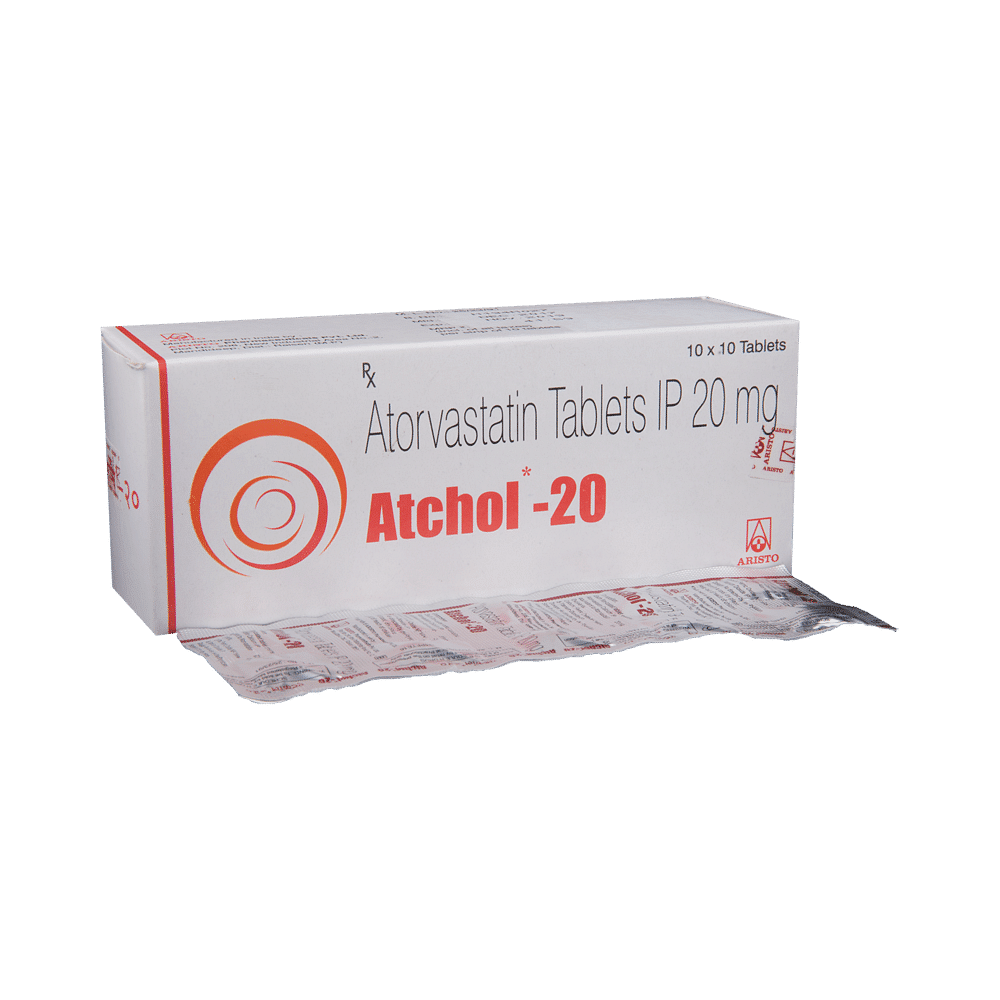
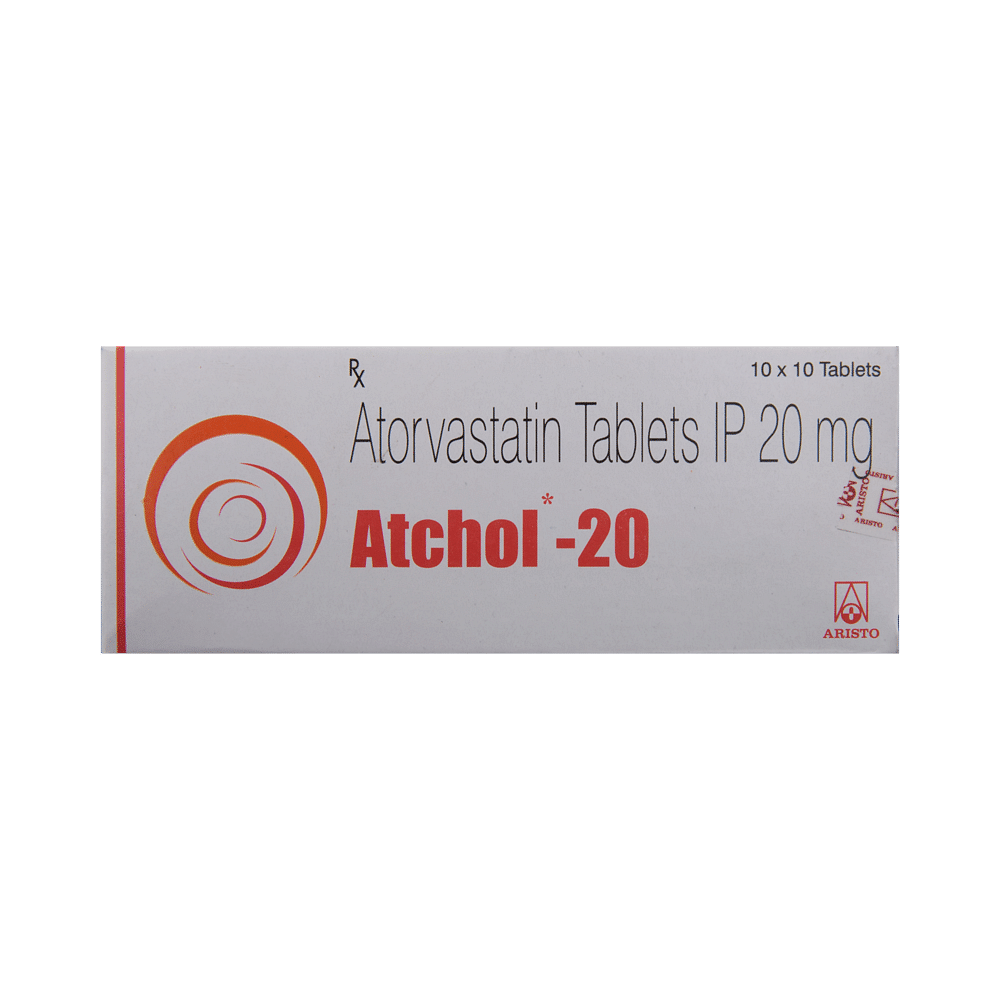
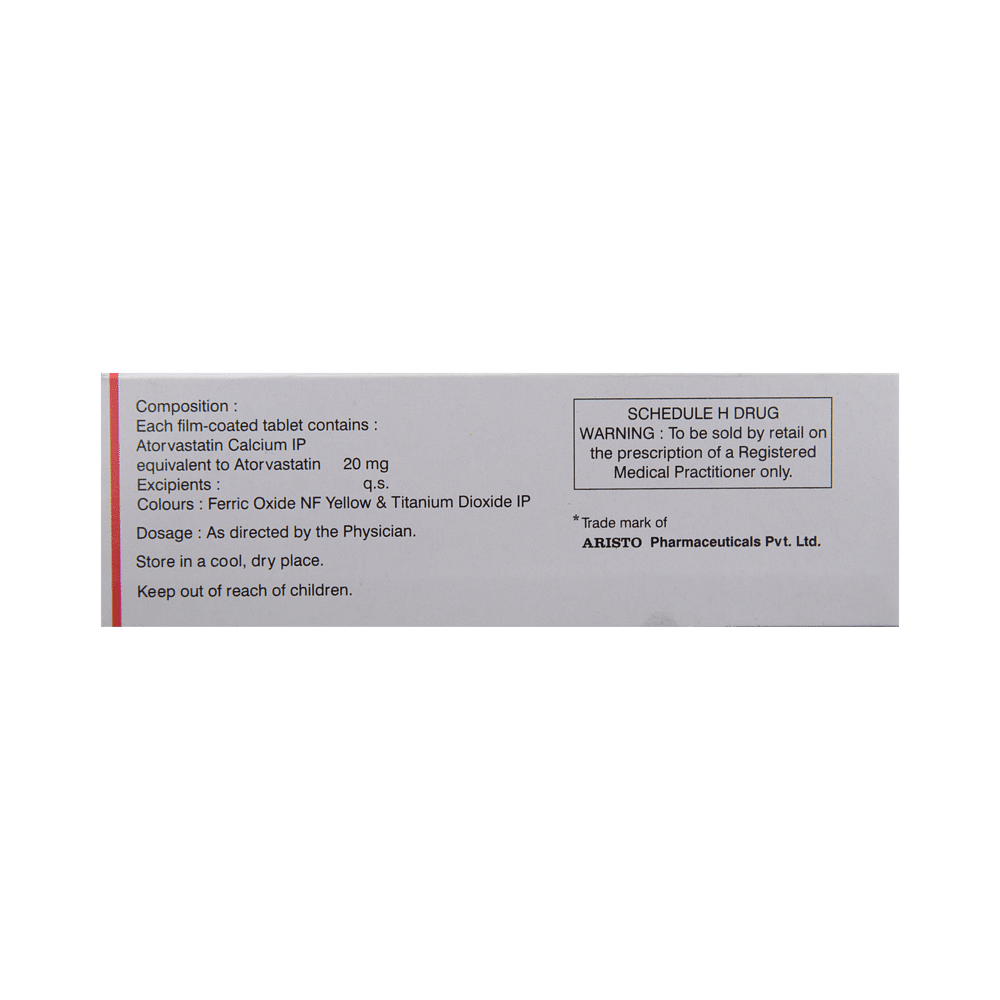
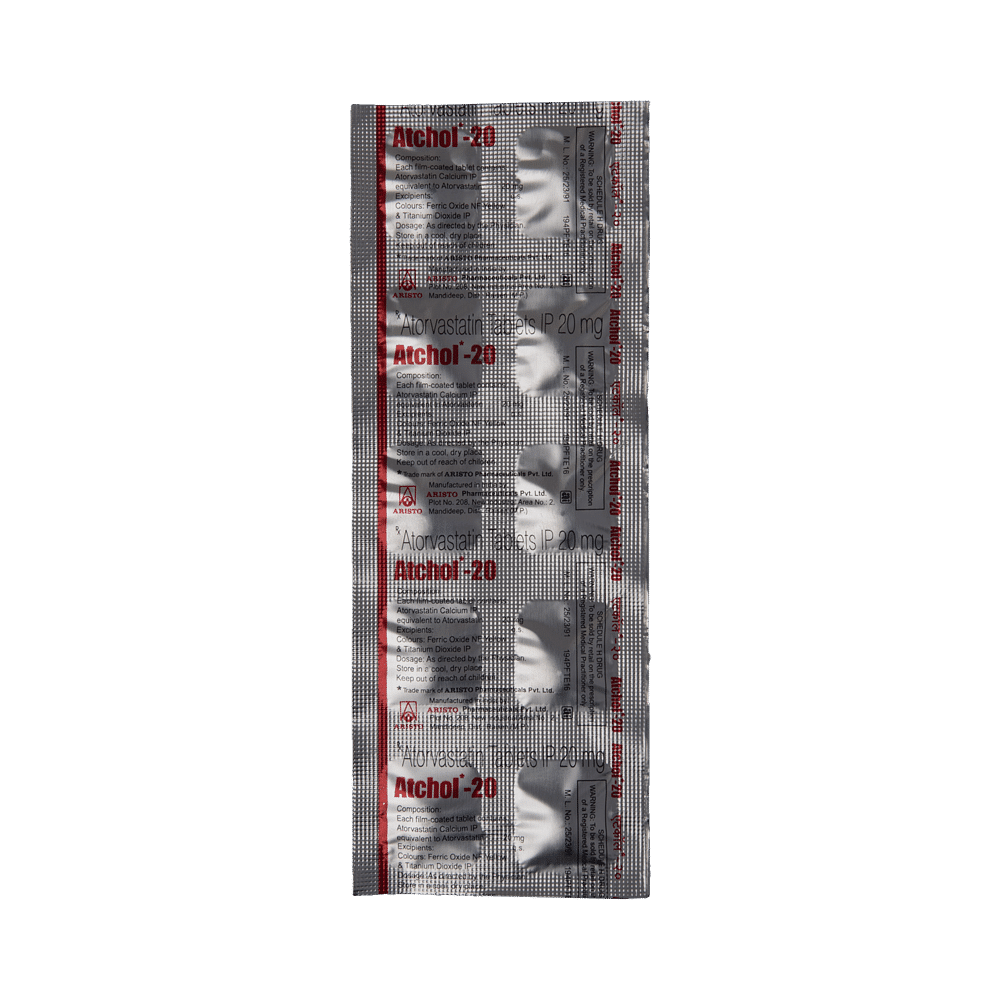

Atchol 20 Tablet
Manufacturer
Aristo Pharmaceuticals Pvt Ltd
Salt Composition
Atorvastatin (20mg)
Key Information
Short Description
Atchol 20 Tablet is a lipid-lowering medication (statin) used to lower cholesterol and reduce the risk of heart diseases.
Dosage Form
Tablet
Introduction
Atchol 20 Tablet is a widely prescribed medicine and is regarded as safe for long-term use when taken as per the doctor's advice. It can be taken with a meal or on an empty stomach. You can take it at any time of the day but try to take it at about the same time each day. Most people with high cholesterol do not feel ill but stopping your medicine may increase your cholesterol levels thereby increasing your risk of heart disease and stroke. It is important to have your cholesterol levels checked regularly. This medicine is only one part of the treatment program which should also include a healthy diet, regular exercise, smoking cessation, moderation of alcohol intake, and weight reduction. You can eat normally while taking this medicine but try to avoid foods that are high in fat. Common side effects of this medicine include constipation, flatulence, dyspepsia, and abdominal pain. These are usually mild and disappear after a short time. Consult your doctor if they persist or if you notice any yellowing of your eyes or get repeated or unexplained muscle pains. This medicine should not be used in some conditions such as liver disease. Also, pregnant women and breastfeeding mothers should not take this medicine as it may harm the developing baby. Diabetic patients should monitor their blood sugar levels while taking this medicine as it may lead to an increase in blood sugar levels. Your doctor may check your liver function before starting the treatment and monitor it regularly thereafter.
Directions for Use
Take this medicine in the dose and duration as advised by your doctor. Swallow it as a whole. Do not chew, crush or break it. Atchol 20 Tablet may be taken with or without food but it is better to take it at a fixed time.
Safety Information
Side Effects
constipation flatulence dyspepsia abdominal pain
Alcohol Warning
Caution is advised when consuming alcohol with Atchol 20 Tablet. Please consult your doctor.
Breastfeeding Warning
Atchol 20 Tablet is unsafe to use during breastfeeding. Data suggests that the drug may cause toxicity to the baby.
Pregnancy Warning
Atchol 20 Tablet is highly unsafe to use during pregnancy. Seek your doctor's advice as studies on pregnant women and animals have shown significant harmful effects to the developing baby.
Interacting Medicines
Amiodarone Amlodipine Azithromycin Benidipine
How it works
Atchol 20 Tablet is a lipid-lowering medication (statin). It works by blocking an enzyme (HMG-CoA-reductase) that is required in the body to make cholesterol. It thus lowers 'bad' cholesterol (LDL) and triglycerides, raising the level of 'good' cholesterol (HDL).
Quick Tips
In general, Atchol 20 Tablet is safe. It may cause diarrhea, gas or an upset stomach. If any of these happen to you, take it with food. Inform your doctor if you experience fatigue, muscle weakness or muscle pain. Your doctor may check your liver function before starting the treatment and regularly thereafter. Inform your doctor if you notice signs of liver problems such as stomach pains, unusually dark urine or yellowing of skin or eyes.
Related Medicines
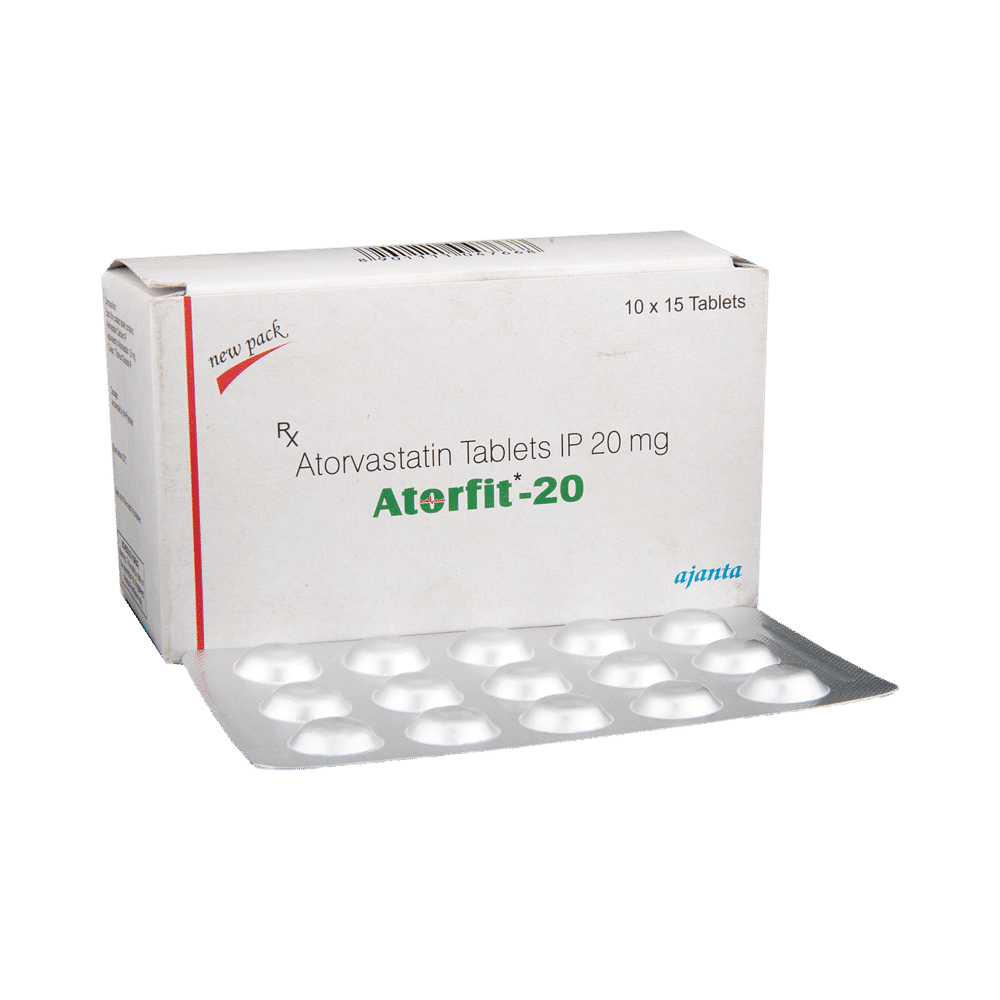
Atorfit 20 Tablet
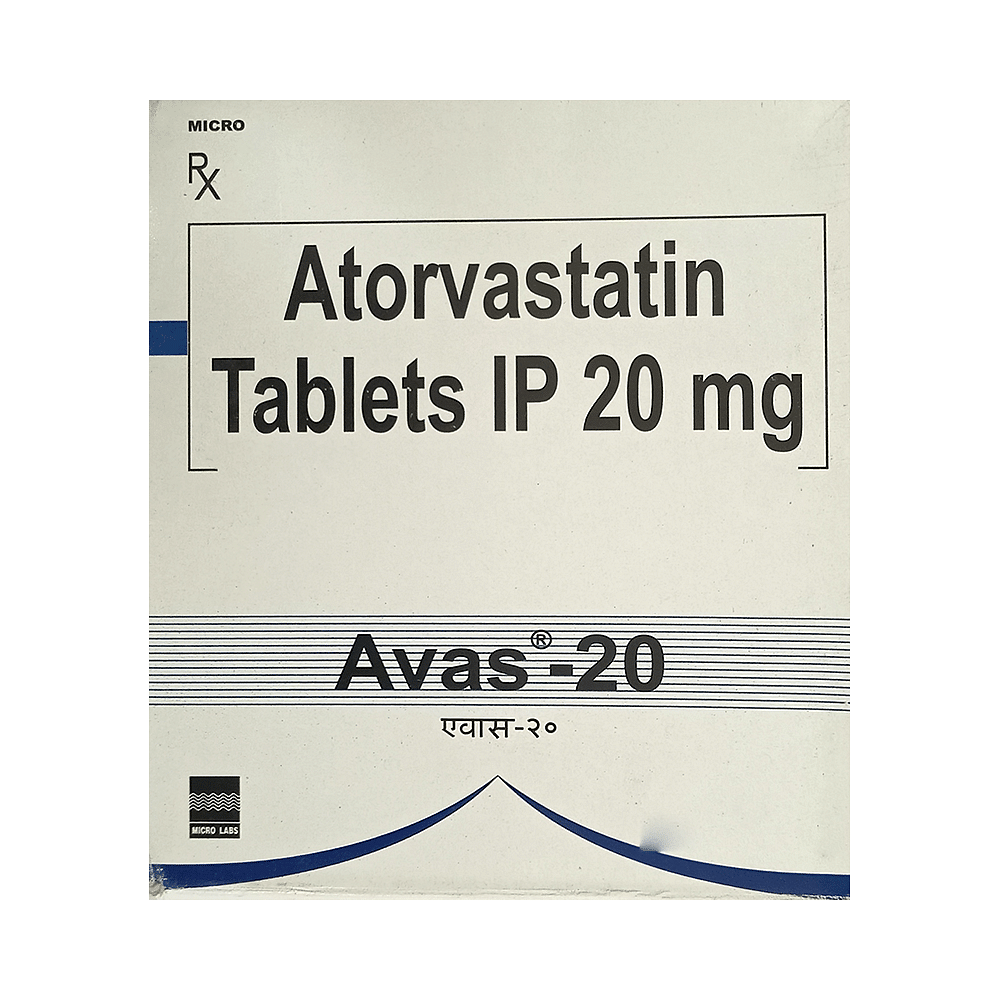
Avas 20 Tablet
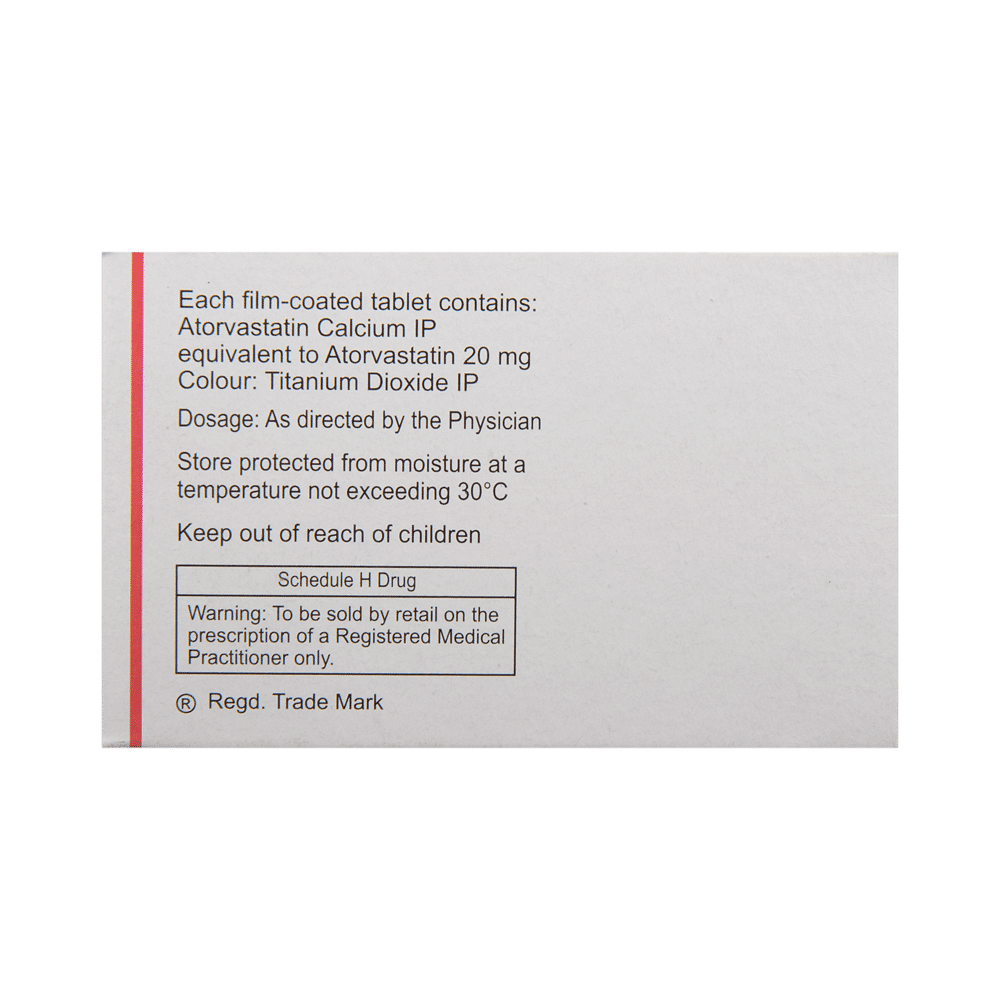
Xtor-20 Tablet
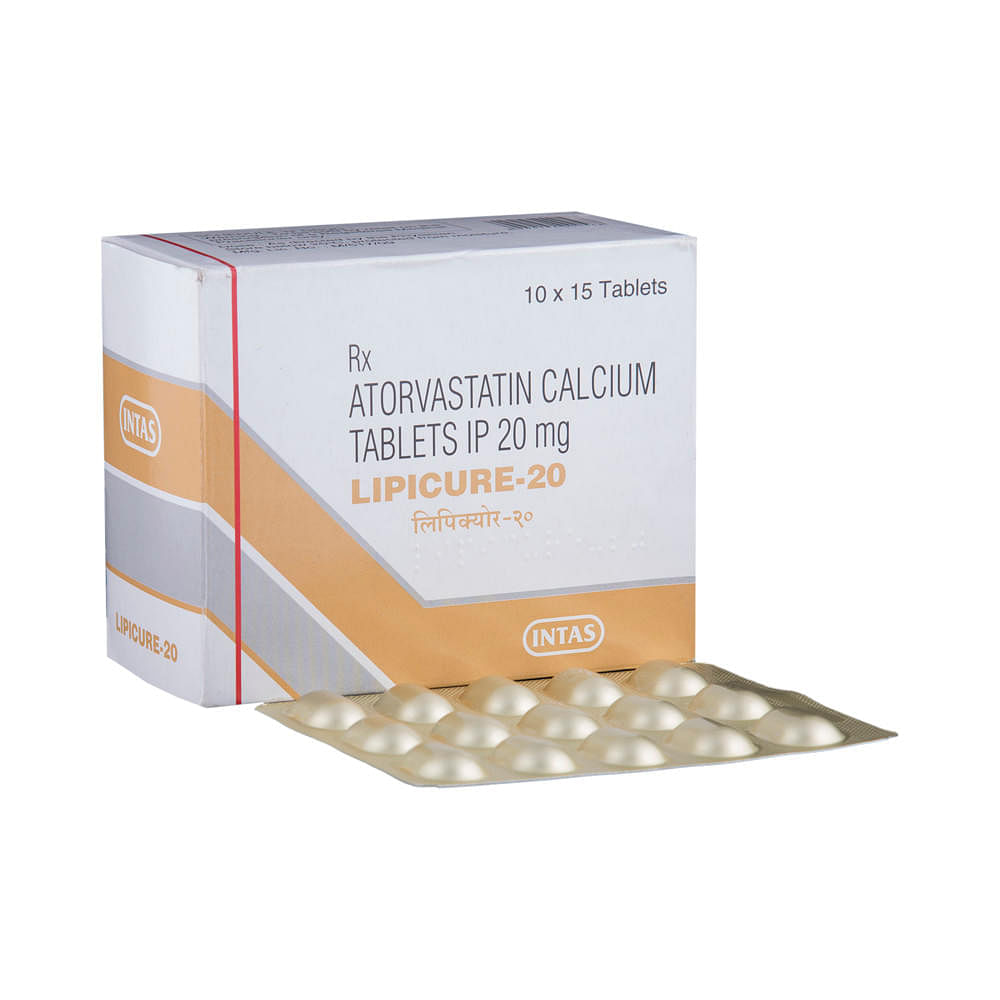
Lipicure 20 Tablet
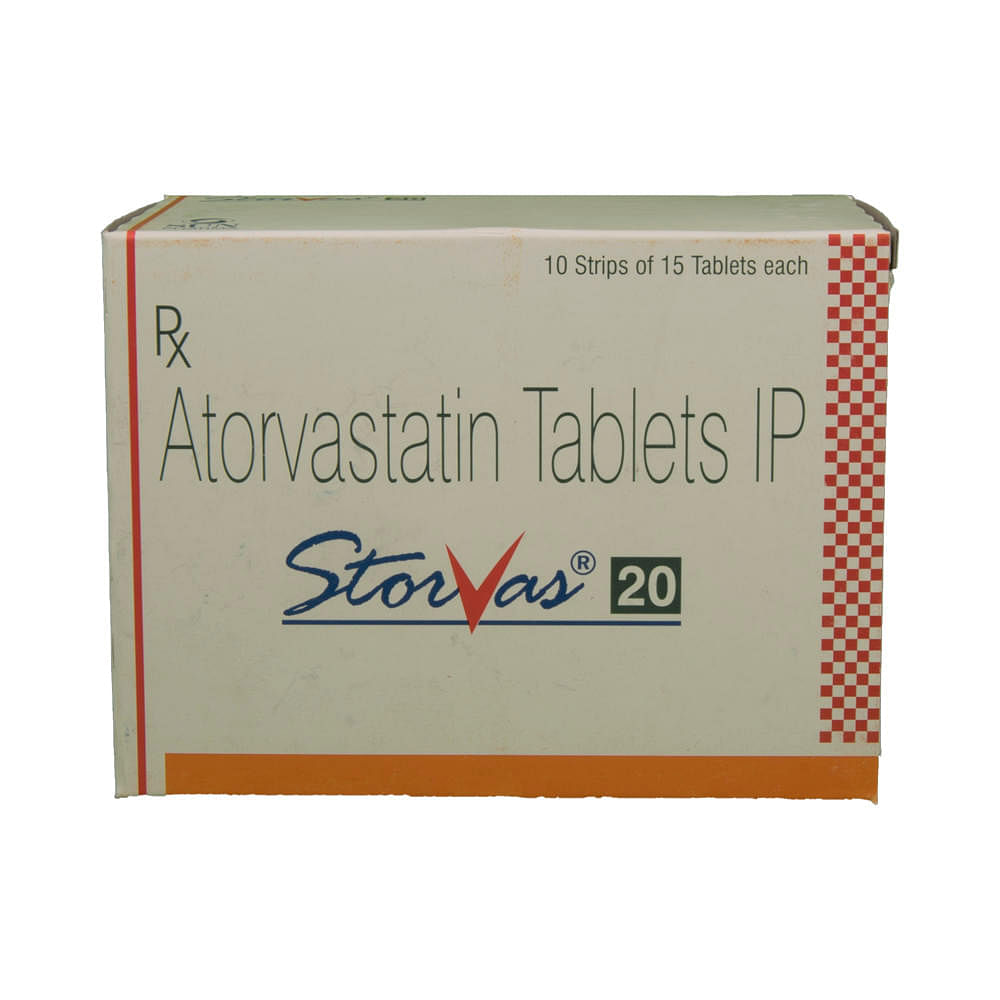
Storvas 20 Tablet
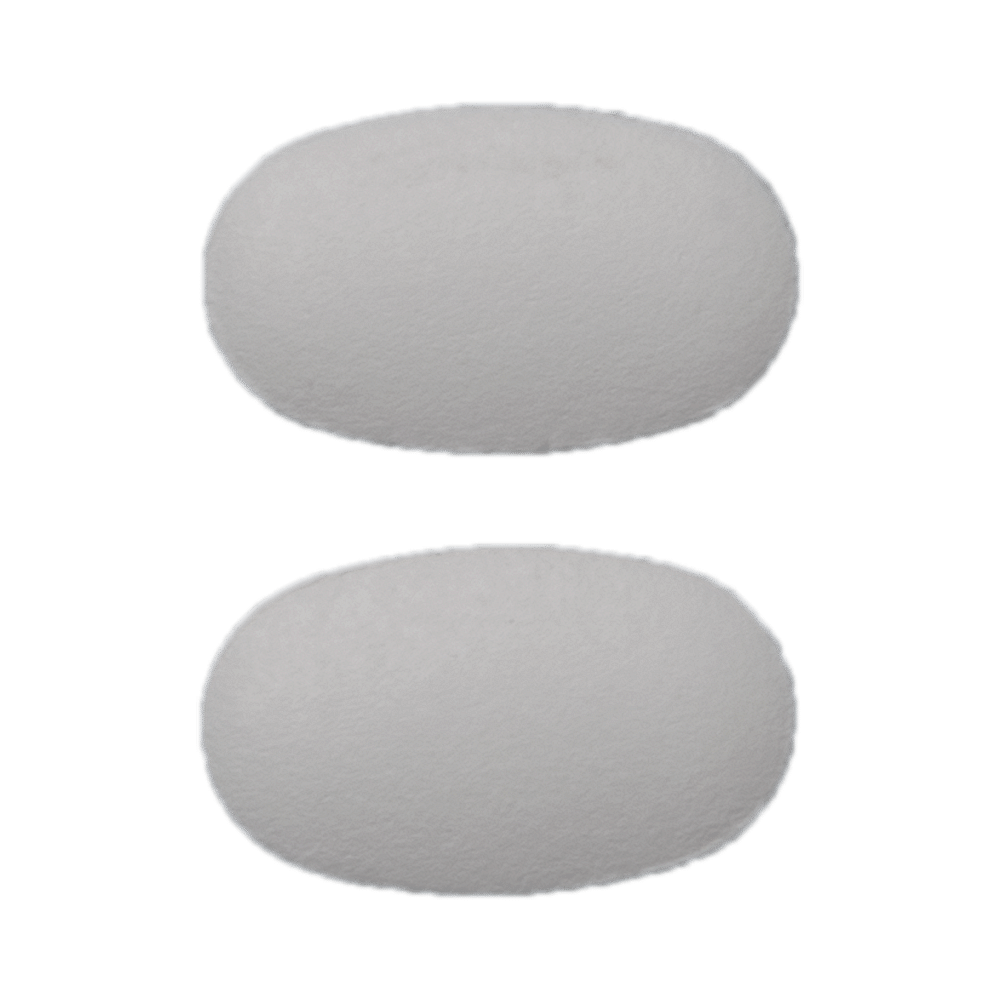
Atorlip-20 Tablet
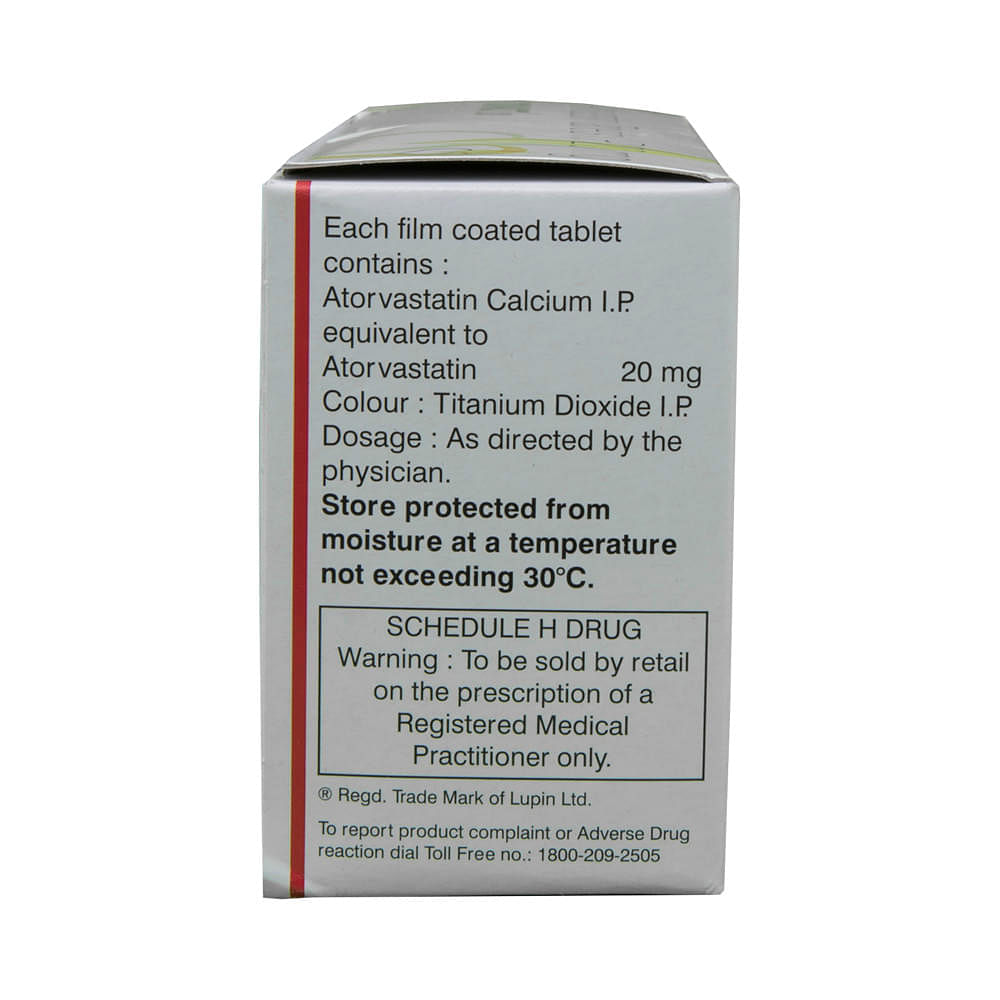
Tonact 20 Tablet

Liponorm 20mg Tablet
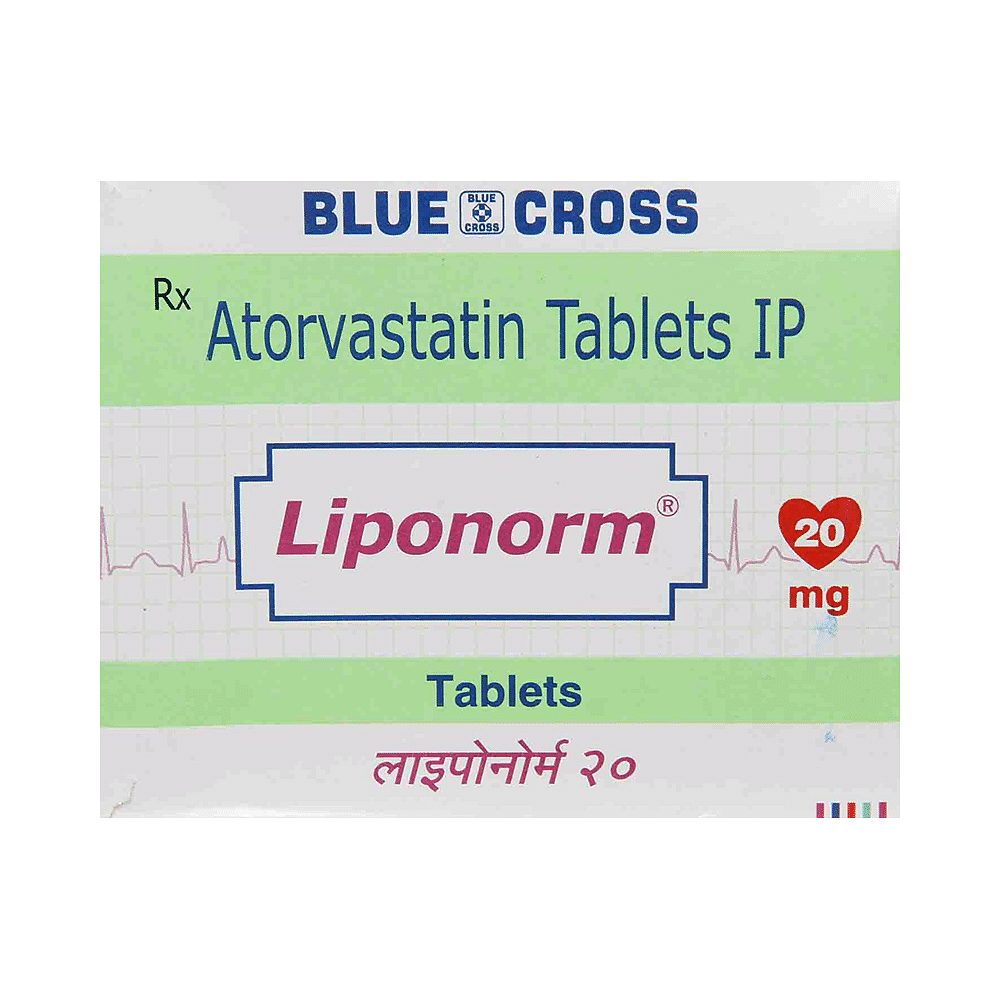
Liponorm 20mg Tablet
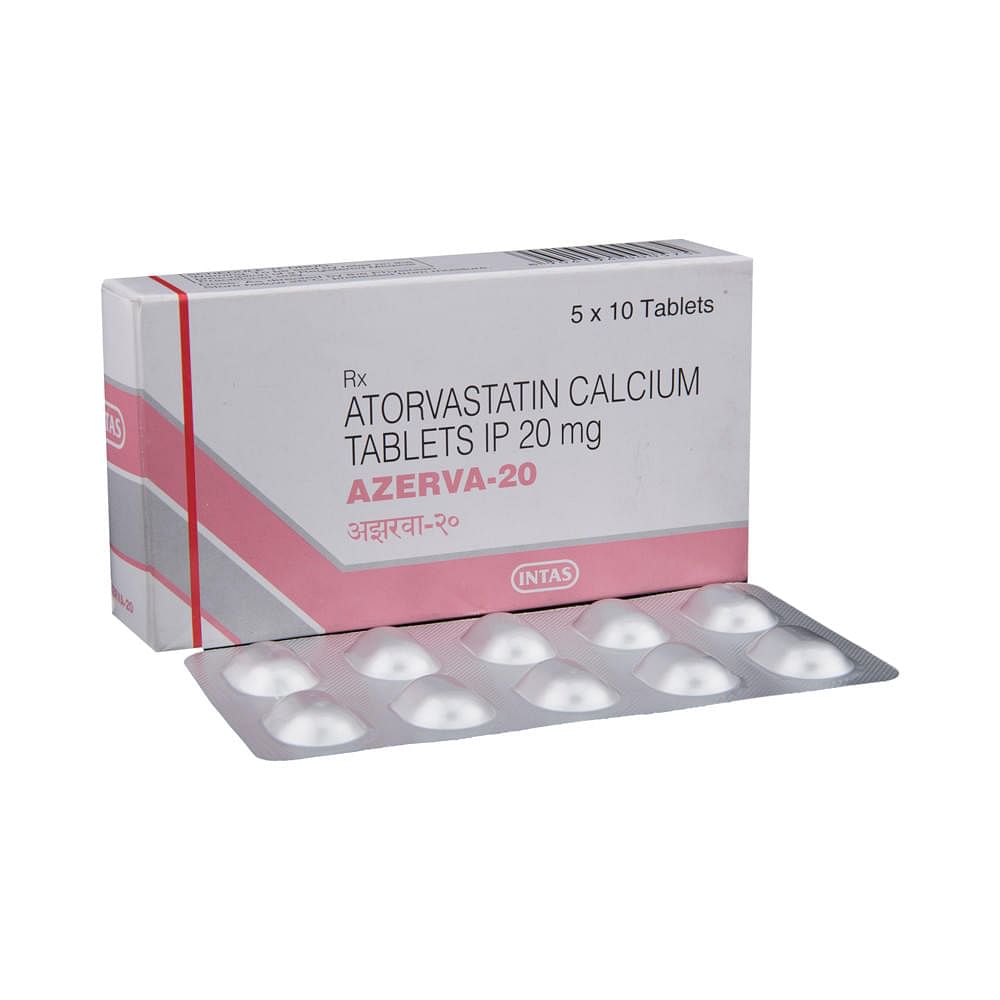
Azerva 20 Tablet
Frequently asked questions
What should I know about high cholesterol?
Cholesterol is a type of fat found in your blood. Total cholesterol is determined by the amount of LDL and HDL cholesterol in your body. LDL cholesterol, known as 'bad' cholesterol, can build up in your blood vessels, slowing or blocking blood flow to your heart, brain, and other organs. This can increase the risk of heart disease and stroke. HDL cholesterol, often called 'good' cholesterol, helps prevent bad cholesterol from building up in your blood vessels. High levels of triglycerides are also harmful. It is important to maintain healthy cholesterol levels for overall well-being.
Can Atchol 20 Tablet cause muscle problems or muscle injury?
Yes, taking Atchol 20 Tablet can lead to muscle problems or muscle injury. This is due to the reduced oxygen supply to the muscles, leading to fatigue, muscle pain, tenderness, or muscle weakness. The soreness might be significant enough to interfere with your daily activities. Do not ignore this and consult your doctor for ways to prevent it and avoid making it worse.
Is Atchol 20 Tablet used for lowering cholesterol?
Atchol 20 Tablet belongs to a group of medicines known as statins, which help lower the level of lipids or fats. It is used to lower levels of cholesterol and triglycerides in the blood when dietary changes and lifestyle modifications fail to do so effectively. Atchol 20 Tablet can also be prescribed for individuals at increased risk of heart disease even if their cholesterol levels are already normal. Maintaining a standard cholesterol-lowering diet during treatment is crucial.
Can Atchol 20 Tablet be prescribed to children?
Atchol 20 Tablet is for adults and children aged 10 years or older whose cholesterol levels do not respond well to exercise and a low-fat diet. It's not approved for use in patients younger than 10 years old.
Can I take alcohol with Atchol 20 Tablet?
No, taking alcohol with Atchol 20 Tablet is not recommended. Alcohol increases the risk of liver problems and worsens triglyceride levels while taking this medication. Furthermore, it can exacerbate side effects such as muscle pain, weakness, and tenderness.
Does Atchol 20 Tablet cause memory loss?
Memory loss might occur with Atchol 20 Tablet in rare cases. This is generally non-serious and may appear within days or take years to appear. These symptoms usually disappear after about three weeks of stopping Atchol 20 Tablet. However, it's crucial to consult your doctor if you experience this side effect as other causes should be considered.
When should I take Atchol 20 Tablet?
Atchol 20 Tablet is generally taken once a day. You can take it in the morning or night, or at any time of the day, with or without food. Consistency in timing helps you remember when to take the medication.
Does Atchol 20 Tablet make me tired?
Yes, Atchol 20 Tablet can cause tiredness. This occurs because it reduces the energy supply to your muscles. The exact reason for this is still unknown and needs further research. Tiredness usually happens after exertion, and general fatigue is more common in people with heart disease or liver illness. It's important to consult your doctor if you feel tired while taking Atchol 20 Tablet.
What are the most common side effects of Atchol 20 Tablet?
Common side effects of Atchol 20 Tablet include nausea, indigestion, constipation, flatulence, diarrhea, headache, and aches in your back and joints. You may also experience nosebleeds, sore throat, and cold-like symptoms such as a runny nose, stuffy nose, or sneezing.


